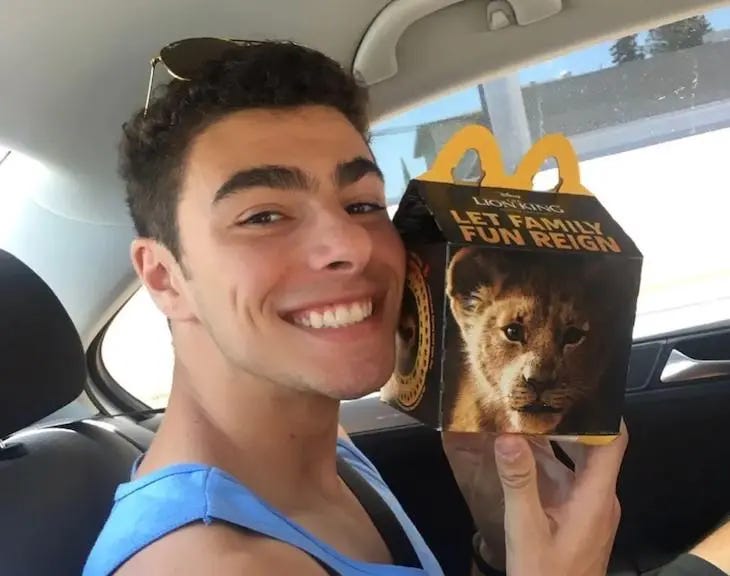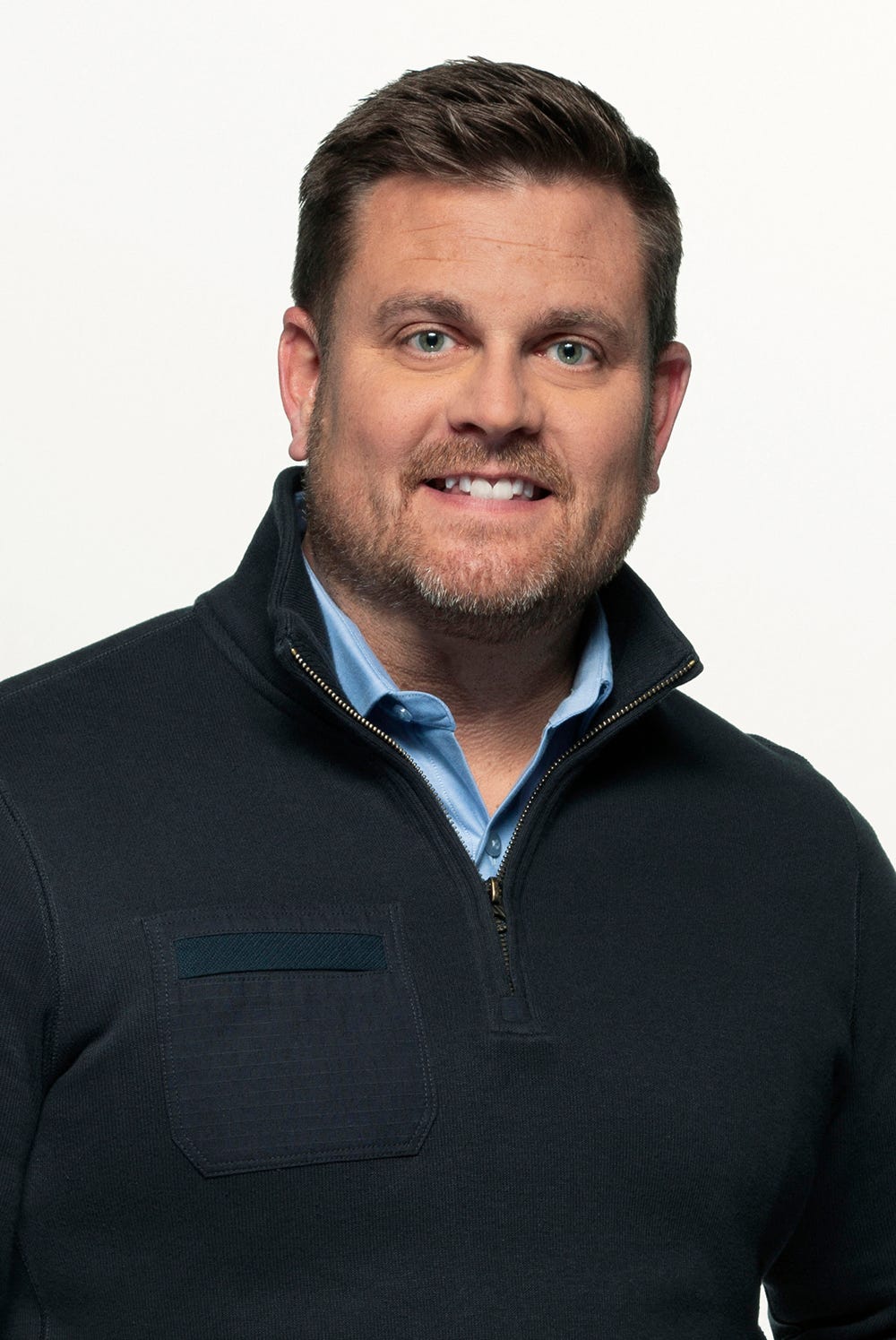DISCLAIMER: These are my hot takes on an evolving case—an exploration of a cultural phenomenon. I do not condone this murder. I do however believe it is worth trying to understand not only why it happened, but why so many Americans are celebrating it. This event is a tell. There is a lot to learn about America in the way it is playing out.
I had planned to write a post about America's need for communal experiences this week. Events that cross the broadening chasms that divide our country, that bring us together, regardless of our politics, values, or creed: things like sports, blockbuster cinema, T-Swift . . . even that painful Mike Tyson fight that came hard on the heels of the presidential election.
And then, along came Luigi Mangione, the alleged United Healthcare CEO killer.
On the morning of Dec. 4th, United Healthcare CEO Brian Thompson was shot fatally in the back while on his way to work in Manhattan. Shells found at the murder scene were etched with the words “Deny,” “Depose” and “Defend”. After a five-day manhunt, with a $60k bounty, police arrested 26-year-old Luigi Mangione in Altoona, PA after a tip from a McDonalds employee. On his body were a ghost gun, suppressor, fake New Jersey ID, and a handwritten manifesto, declaring the killing a challenge to healthcare industry corruption and greed, and apologizing for any “strife or trauma” resulting from it.
And the chasms were bridged.
Social media erupted with glee. Luigi memes, shirtless, smiling, iconized as a saint, or even Jesus — ran rampant. Influencers right and left rallied with compassion and celebration. Conversely, posts memorializing the deceased CEO were mocked and trolled.
If you’ve seen Wicked, perhaps you’ll remember when Oz tells Elphaba that “The best way to unite the people is give them a common enemy.” He’s not wrong. He’s just an asshole.
If what brings Americans together is murder and an attempt to take on our healthcare institution, what does this say about our country?
For one thing, it says America has by no means evolved beyond violence as a way to solve our problems. In fact, it’s our #1 solution: we spend more on military than any other country. Violence is our answer. We guard the second amendment with our lives, because it is our right to defend ourselves when that $850 billion military fails.
Every year, insufficient medical care due to lack of insurance is responsible for an estimated 45,000 deaths in America. And yet, we have the world’s most expensive healthcare system, and our most profitable healthcare company, United Health, ranks 8th on the Fortune 500 Global list (5th nationally).
“Is curing people a sustainable business model?” Goldman Sachs analysts asked in a recent report, a sweet summary of the perils of our for-profit healthcare system. Its failures are as plainly written in statistics. Among developed nations, we perform worst in avoidable death, life expectancy, and access. More than half of Americans have experienced medical debt in the past five years. One in seven of them has been denied access to medical care because of that debt, and two-thirds have put off medical care because of costs. Twenty percent of privately insured Americans report claims denials. Providers working within the system find themselves unable to provide the care they know their patients need. If you don’t see yourself in this story, someone you know does.
If Americans have the right to defend ourselves, and there is an entity that is systematically threatening our right to life, and our government is not stepping in to protect us from them, it’s not hard to follow how an individual could come to the conclusion that taking violent action fits into our given model of punitive, vigilante justice.
How the murder of a CEO became an act of self-defense against his company can be understood through our history of creating villains out of our enemy’s leaders, and glorifying their extensive manhunts—think Saddam Hussein, Osama Bin Laden, and most recently Hamas leader Yahya Sinwar. For the past year, we have been watching on all channels as Israel systematically eradicates the population of Palestine, under the guise of finding and killing the leaders of Hamas, an act of “self defense” funded by American tax dollars. We are told to celebrate when a terrorist leader is killed, and excuse the murder of tens of thousands of women and children as collateral damage. Hamas is not its leaders, and yet we support the murder of its leadership as a means to destroy it, even when we know historically that they will simply be replaced by others radicalized as part of that “collateral damage.” We certainly don’t talk about those slaughtered leaders as humans, as fathers, as sisters, as grandfathers.
But they are, as was Brian Thompson. The CEO of United Healthcare was a father to two sons, a husband, an affable industry figure, a man who worked his way up the ranks from public accountant to leader of the most profitable health care company in the world. He was not a system, he was a human part of it, with a heart that beat blood as red and salty as yours; a human who had fears and desires, who at the end of the day was probably just trying to feel good in his world. He was sold the same American dream that those laughing at his death strive for, only he got it: the riches, the success, the power.
But we are not taught to look at the face of our enemy, much less to their heart. It is easier to kill that which we do not know. Which is perhaps why it’s so easy for these enormous health care companies to value their own profits over our lives. Perhaps, Brian Thompson wasn’t that different from you, me, or the person who killed him; luck just landed them their roles within a violent and contradictory culture.
Luigi is being charged with murder as an act of terrorism — a charge that confirms the magnitude of his act, that confirms the very reason he has become a folk hero: This was not an attack on an individual. This was an attack on an American Institution.
The killer’s ultimate goal then, seems to be not to be take lives, but to save lives. And in that, there is an indication of of self-sacrifice. It seems clear that he was smart enough to know he would not get away with this. He acted on behalf of all Americans injured by the system, putting his own body and life at risk for ours. And while we may not have asked him to do this, the fact that he has become a hero demonstrates a broader cultural approval for his tactics.
I watched Unforgiven a few nights ago, a tremendous film with perennial value. In it, Clint Eastwood examines the truth behind the mythology of killers. As much as the killing of men was glorified, culturally entrenched, reduced to entertainment, and justified in the Wild West and the Western filmography that enshrined that piece of American history, so it is today our media. A select few who are able to commit the violence, for whatever reason of trauma or neural wiring, do, and society cheers them on and makes them into heroes or villains, famous either way.
Violence is codified by our government, then celebrated by our media, perpetrating the idea that it is, both at institutional and vigilante levels, a cultural solution to our problems.
Let’s look at social media, where the Robin-Hooding of the purported killer took place. The memes spread like wildfire, and influencers took a celebratory stand. Fuck the rich. Free the oppressed. “Me too” type stories spread; merchandise inked with “Deny, Depose, Defend” popped up all over the internet. Social media loves violence. Just look at how it’s led to an epidemic of school brawls. The algorithms are not designed to perpetuate nuanced discussion, they are designed for viral reproduction of extreme events and views.* We used to say “if it bleeds, it leads,” and that has never been more true.
*brief aside, this is a reason I love Substack—built to encourage and sustain just the kinds of nuanced, curious conversations that other social platforms crush.
I want to circle back to where we began—the topic of communal experience as a unifying force. Historically healthcare reform has been the jurisdiction of the left, with conservatives defending the continued privatization of our system. And yet, this murder has united left and right. So . . . universal healthcare is not a bipartisan solution, but shooting CEOs is . . . ? I’d love to hear your hot takes.
Americans love a hottie rebel who takes on The Man, and in this country, violence is a codified and celebrated form of defense. Sensationalist, for-profit news and social media perpetuates this. And so, the CEO killer's actions were fitting for a culture that consistently devalues human life, celebrates and profits off violence, and enshrines our right to armed self defense. It will be interesting to see if this murder leads to any change in the American Healthcare system. What on earth do we make of that? I hope that we don’t embrace this as an answer, but rather an indication of the depth and complexity of our sickness.
When we stop focusing on the person holding the smoking gun, we make space to examine, challenge and change the world that created him. May we find our ways to do this both with both the CEO and his killer.










